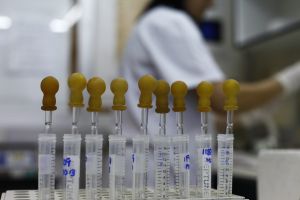Estrogens are essential female hormones that perform many basic functions in the body. However, on some occasions it may also cause or contribute to the growth of some cancers, including breast, because it stimulates the growth and division of tumor cells.
The estrogens-responsive tumors are known as “positive for the estrogens receptor” and it is fought, among others, by the administration of “anti-estrogens” drugs. Such tumors occur in approximately two thirds of patients. In many cases, the tumour, who initially responded to treatment, becomes resistant at the end, causing cancer progression.
An international study led by the Unit and the Breast Cancer Translational Research Laboratory ICO-IDIBELL published in Breast Cancer Research analyzed the molecular mechanisms that facilitate resistance to anti- cancer estrogenic therapies.
The work, led by Miguel Angel Pujana has identified Vav3 activity as a key protein in this process. According to the study, low levels of expression of Vav3 lead a better response to hormonal therapy (eg tamoxifen based), whereas high expression is associated with a worse response. Genetic variants have been identified in the gene encoding Vav3 that predict response to therapy. Accordingly, decreasing the level of expression or activity of Vav3 is a good strategy to prevent resistance to anti-estrogens treatments. In this sense, the research group has initiated pilot studies in pre-clinical models.

